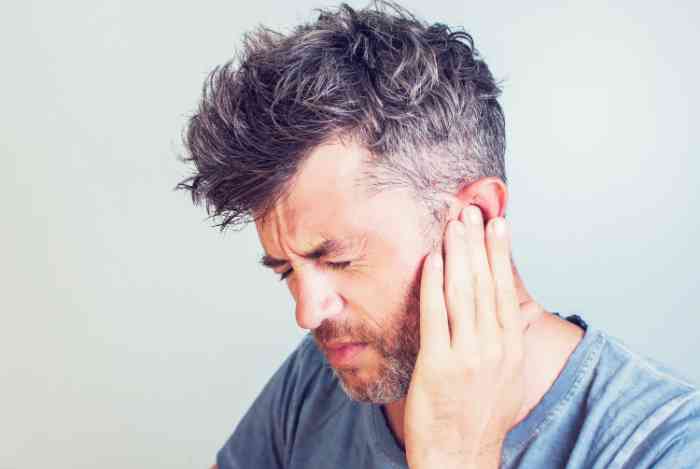If your ears feel clogged, it can be uncomfortable and frustrating. A blocked ear may cause muffled hearing, ear pain, or even a feeling of pressure in your ear canal. To figure out why your ear feels clogged, it’s important to understand the possible causes and available treatments. This article will explore common reasons for clogged ears, how to get relief, and when to seek medical help.
What Happens My Ears Feel Block and I Can't Hear Properly.
When your ears feel blocked, it’s usually due to a disruption in airflow or drainage within the ear canal or middle ear. This blockage can trap earwax or fluid, creating pressure and discomfort. It often leads to muffled hearing, which can be frustrating. In many cases, the issue resolves on its own, but persistent blockages may indicate problems like ear infections, sinus pressure, or even eustachian tube dysfunction.
Common Causes of Ear Blockage
There are several reasons why your ears feel clogged. Let’s explore the most common causes:
Impacted Earwax
Excessive earwax can build up in the ear canal, making the ear feel clogged. Too much wax in the ear can harden and cause muffled hearing or even temporary hearing loss. Avoid using a cotton swab to clean your ear, as it can push earwax deeper. Over-the-counter ear drops or baby oil can help soften the wax, but if it doesn't resolve, see a healthcare provider to remove the impacted earwax.
Eustachian Tube Dysfunction
The eustachian tube connects the middle ear to the back of the throat. When it gets blocked, usually due to sinus infections, upper respiratory infection, or allergies, you might feel pressure and a clogged sensation. This condition, known as eustachian tube dysfunction, is common during air travel or changes in altitude. Techniques like swallowing or chewing gum can help clear the blockage.
Fluid in the Ear
Fluid can accumulate in the middle ear due to ear infections or other respiratory viruses. This fluid causes a blocked ear feeling, often leading to ear congestion and pressure. The fluid usually drains on its own, but sometimes, a doctor may need to help drain fluid from the ear.
Sinus Pressure and Allergies
Sinus pressure from sinus infections or allergies can block the eustachian tubes, making your ears feel clogged. Inflammation from a runny nose or sore throat can also cause pressure in the ears. Treating the underlying sinus problem with decongestants or antihistamines can relieve the clogged sensation in your ears.
Noise-Induced Hearing Loss
Exposure to loud noises can cause temporary hearing loss and a feeling that your ear feels clogged. If you experience this after attending a concert or working in a loud environment, it may be a sign of hearing loss. Long-term exposure to noise can lead to permanent hearing loss, so protecting your ears with earplugs is important.
Rare Causes of Ear Blockage
While less common, there are some rare conditions that may explain why your ears feel clogged:
Meniere’s Disease
This disorder affects the inner ear and can cause ear fullness, dizziness, and hearing loss. It's often accompanied by muffled sounds and pressure in the affected ear.
Anxiety and Stress
Believe it or not, anxiety can make your ears feel clogged. Stress affects blood flow to the inner ear, causing pressure or a clogged sensation.
Acoustic Neuroma
An acoustic neuroma is a benign tumor on the auditory nerve that can lead to muffled hearing and a blocked feeling. Though rare, this condition requires medical intervention.
Outer Ear Infections (Swimmer’s Ear)
An outer ear infection can cause pain, swelling, and fluid discharge. Also known as swimmer’s ear, this condition often happens after water gets trapped in the ear canal.
Symptoms That Often Accompany a Blocked Ear
In addition to the feeling that your ears feel clogged, you might notice other symptoms like ear pain, muffled hearing, or pressure. Sometimes, the blocked ear is accompanied by dizziness, especially if there’s an issue in the inner ear. It's important to watch for these common symptoms, as they can indicate what’s causing the blockage.
Diagnosing the Cause of a Blocked Ear
To determine why your ear feels clogged, a healthcare provider might examine your ears and ask about your symptoms. Diagnosis often includes looking inside the ear canal for impacted earwax or signs of infection. In some cases, doctors may perform a hearing test to check for hearing loss.
Hearing Tests
If your doctor suspects hearing loss, they may refer you to an audiologist for a hearing test. These tests help determine if the blockage is due to ear infections or damage to the auditory nerve.
Imaging and Advanced Tests
If doctors suspect more serious issues like an acoustic neuroma, they may order imaging tests like an MRI to get a closer look at the auditory nerve.
Home Remedies for Unblocking Ears
There are several home remedies you can try if your ear feels clogged due to common issues like impacted earwax or eustachian tube dysfunction.
Removing Earwax at Home
Ear irrigators are relatively inexpensive and can be purchased at most pharmacies. Avoid using a cotton swab, which can make the problem worse by pushing the wax deeper into the ear.
For a more effective and hassle-free solution, consider using the Eddy Ear Irrigator. Unlike traditional methods, Eddy’s 360° adjustable nozzle and 5-stream design ensure thorough and precise cleaning, gently flushing out excess wax without the risk of pushing it deeper. Its IP65 water resistance adds an extra layer of safety, making it perfect for at-home use. Designed to be both powerful and gentle, Eddy provides a superior clean, helping you regain clarity and comfort in no time.
Techniques for Eustachian Tube Dysfunction
Swallowing, chewing gum, or taking a deep breath and blowing gently while pinching your nose can help open the eustachian tubes and relieve pressure.
Remedies for Fluid in the Ear
If there’s fluid in your ear, tilting your head or applying a warm compress can help drain fluid.
Medical Treatments for Blocked Ears
For more serious or persistent ear blockage, medical treatments may be necessary.
Professional Earwax Removal
If earwax buildup is causing a blockage, a healthcare provider can safely remove it. This is often done through irrigation or using specialized tools.
Treatment for Eustachian Tube Dysfunction
In cases of eustachian tube dysfunction, doctors may recommend decongestants or nasal sprays. In rare cases, surgery is needed to treat blocked eustachian tubes.
Medications for Allergies or Infections
Sinus infections, ear infections, or allergies might require medication like antibiotics or steroids to reduce inflammation and restore normal ear function.
When to See a Doctor for a Blocked Ear
If your ear feels clogged and the problem doesn't go away after trying home remedies, it’s time to see a doctor. Blocked ears can sometimes indicate serious issues like middle ear infections or permanent hearing loss. If you experience sudden hearing loss, severe pain, or fluid discharge, seek medical attention immediately.
Preventing Ear Blockages
To avoid future problems, there are steps you can take to prevent your ears from feeling clogged.
Ear Hygiene Tips
Avoid cleaning your ears with cotton swabs. Instead, use ear drops or visit your doctor for routine cleaning.
Protecting Your Ears from Loud Noise
Wearing earplugs and limiting exposure to loud environments can protect your hearing and prevent long-term hearing loss.
FAQs
Can chewing gum help relieve ear blockages?
Yes, chewing gum can help relieve mild eustachian tube blockage caused by changes in pressure, such as during flights or after a sinus infection. Chewing encourages the eustachian tubes to open and close, which can help equalize pressure and reduce the sensation of a clogged ear.
Can a viral infection cause one ear to feel clogged?
Yes, a viral infection like the common cold or upper respiratory infection can cause fluid buildup in the middle ear, leading to a feeling of fullness in one ear or both. This is typically temporary but may require medication to clear the blockage.
Can neck surgery affect your hearing or cause a blocked ear sensation?
Neck surgery can sometimes affect the nerves or muscles around the ear, leading to a sensation that your ear feels clogged. If you experience this after surgery, it’s best to consult your surgeon or a hearing healthcare professional to evaluate the cause.
Can hearing aids help if my ear feels clogged due to hearing loss?
If your ear feels blocked due to hearing loss, using hearing aids can improve sound clarity and reduce the muffled sensation associated with the loss. A hearing healthcare specialist can determine if hearing aids are the right solution for you.
Can communication disorders be linked to ear blockages?
Yes, some communication disorders, especially those involving hearing loss, may be related to ear blockages. Persistent blockages, if left untreated, can impact hearing ability and lead to challenges in communication. It’s crucial to seek help from a hearing healthcare professional to address both the ear blockage and any potential hearing concerns.








Share:
Related Blogs
Why Are My Ears Popping: Understanding the Causes and Solutions
How Do You Know If You Have an Ear Infection?